2024

Dr. Ru Chen received funding from the NCI Grants Management Office. Her study is titled, “Blood-based proteomic assay for pancreatic cancer detection.”(Year-1 Funding: $292,729; Funding Period: 4 years)

Nov. 3: Dr. Jason Hou, Associate Professor, Gastroenterology and Hepatology, was awarded a VA HSR IIR grant for the project “Testing the Impact of Measurement-Based Care on Quality of Life and Diseases Management among Veterans with Inflammatory Bowel Disease: A Hybrid Effectiveness-Implementation Study.”
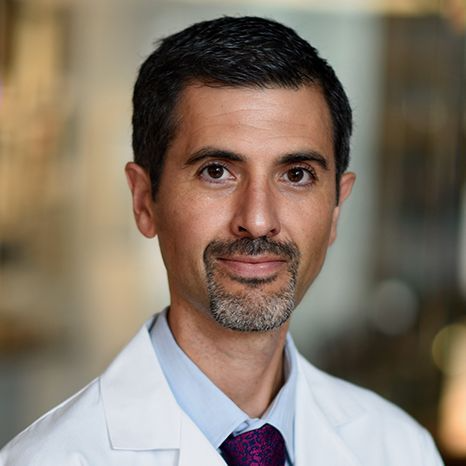
Oct. 1: Dr. Ruben Hernaez won the Physician Enterprise Academic Excellence Award. This award reflects the importance of scientific research and advancements in the Baylor College of Medicine system. The article awarded is “The novel SALT-M score predicts 1-year post-transplant mortality in patients with severe acute-on-chronic liver failure.”
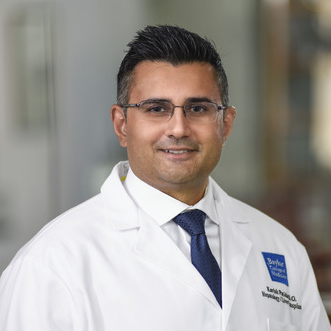
Oct. 1: Dr. Kavish Patidar received The John A. Hartford Foundation supported Diagnostic Excellence – Age Friendly Health Systems (DxEx-AFHS) Seed Grant from the Institute for Healthcare Improvement (IHI). His study is titled, “Reducing Missed Opportunities for Timely Diagnosis and Treatment of Acute Kidney Injury Care in Elderly Patients with Cirrhosis.” (Funding amount: $100,000; Funding Period: 2 years)

May 29: Dr. Richa Shukla successfully competed for the IBD Qorus Health Equity Award from the Crohn's & Colitis Foundation. Funding Amount: $125,000; Funding Period: 2 Years. Her application was selected from among 14 submissions for this award.
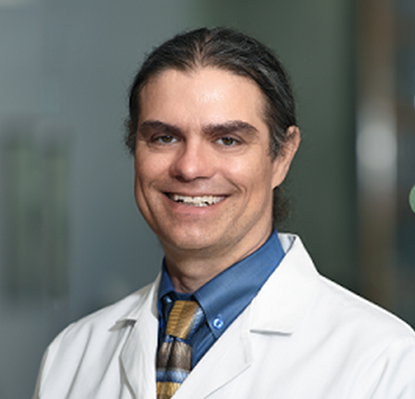
May 13: Dr. Jason Mills, Professor, Gastroenterology and Hepatology, was awarded a grant renewal from the NIH NIDDK for his study titled, “Mechanisms of chief cell dedifferentiation.” With this support, the Mills Lab is investigating how the digestive enzyme-secreting cells of the stomach lining can respond to injury by scaling down their elaborate subcellular network of secretory granules. This represents the first step of a transformative process known as metaplasia, which can either cause repair or increase risk for gastric cancer. Dr. Mills and his team are identifying the genetic mechanisms that drive this process. (Funding amount: $3,120,000; Funding period: 5 years).

April 19: Dr. Jared Sninsky received the Department of Medicine Physician-Scientist Faculty Development Award for his project titled, “Developing a Novel Serum Biomarker Model for the Non-Invasive Assessment of Disease Activity in Ulcerative Colitis.” (Funding amount: $190,000; Funding period: 2 years)

April 19: Dr. Mimi Tan received the Norton Rose Fulbright Award. This award recognizes faculty for their exemplary educational contributions.

Jan 8: Dr. Jared Sninsky and Dr. Kavish Patidar received the Digestive Disease Center 2024 Pilot Feasibility Awards for their projects.
Dr. Jared Sninsky received an award for a project entitled, “SPEP Biomarker Model for Disease Activity in UC.”
Dr. Kavish Patidar received an award for his project entitled, “Community-Acquired Acute Kidney Injury in Cirrhosis”.
2023

Oct. 19: Dr. Fasiha Kanwal has been awarded a VA HSR&D Merit Review (Investigator Initiated Research, IIR) grant titled, "Integrating Veteran-Centered Care for Advanced Liver Disease (I-VCALD)." (Funding amount: $1.5M. Funding period: 4 years).
The objective is to conduct a randomized controlled clinical trial of a new advanced liver disease clinical care model which employs a whole person approach. The intervention includes identification of patients with advanced liver disease using a population-based health management system and integration of curative and early supportive care using a virtual outreach nurse care counselor.
Dr. Steven M. Asch, Professor at the Stanford School of Medicine will serve as an MPI. Co-Investigators include Ruben Hernaez, M.D., Ph.D., Jennifer Kramer, Ph.D., and Amber Amspoker, Ph.D. (IQuESt and BCM), Ramsey Cheung, M.D., Thomas Taylor, Ph.D., Caroline Gray, Ph.D., Clara Dismuke-Greer, Ph.D. (Stanford and VA Palo Alto HSR&D COIN), Arpan Patel, M.D., PhD, Anne Walling, MD, PhD (UCLA and the Greater Los Angeles VA Healthcare System), Ragesh Thandassery, M.D. (University of Arkansas and Central Arkansas Veterans Healthcare System, Little Rock), and Tamar Taddei, M.D. (Yale University School of Medicine and VA Connecticut Healthcare System).
Please join us in congratulating Dr. Kanwal, the MPI, the co-Investigators, and project team on this accomplishment
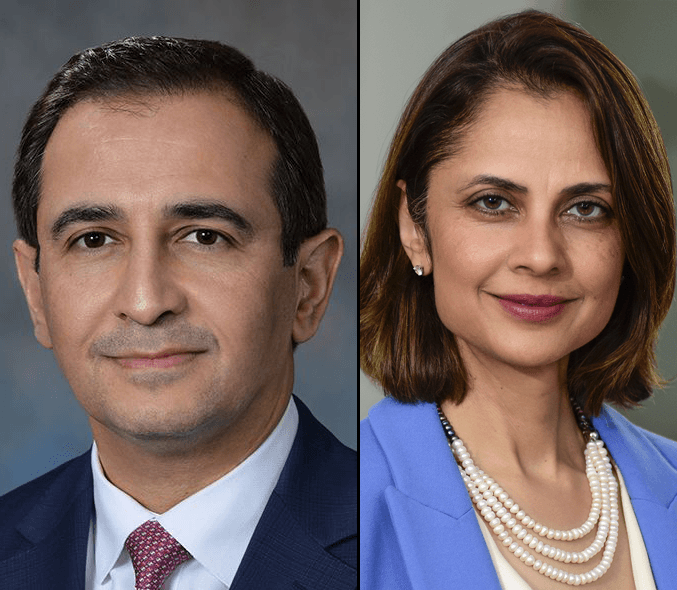
Dr. Hashem El-Serag, Chair, and Dr. Fasiha Kanwal, Chief, Gastroenterology and Hepatology, received a National Institute of Health grant titled, "Risk Stratification for and Early Detection of Liver Cancer.” The overarching goal of the grant is to reduce the mortality of hepatocellular cancer (HCC) by developing personalized indices that combine novel and exciting biomarkers with clinical, behavioral and genetic data to improve risk stratification and increase early detection of HCC.(Funding amount: $4,500,000, funding period: five years.)

Sept. 15: Dr. Saira Khaderi and Dr. George Cholankeril were awarded the POP award by Dr. Stacey Rose at GIGrand Rounds on Thursday, Sept. 14. The Pop Award is given to members of the Baylor College of Medicine community who demonstrate the characteristics of professionalism.
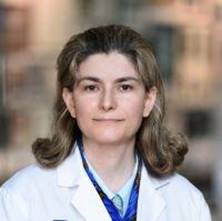
Sept. 15: Dr. Ayse Mindikoglu received the Norton Rose Fulbright Award for Teaching and Evaluation. This award recognizes faculty for their exemplary educational contributions.

Sept. 16: Dr. Jason Mills was invited by the FASEB Science Research Conferences to give a talk at the Gastrointestinal Epithelium Conference: Interface With the Outside World. The title of his talk was " Professional Progenitors vs the Paligenosis Program." The conference is being held from Sept. 17 until Sept. 21, 2023.
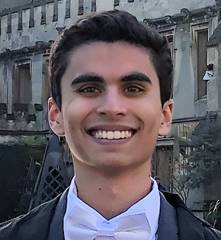
Aug. 28: Anshul Bhatnagar’s abstract entitled, “Inequities in liver transplant and liver-related mortality in the United States” was selected as a Poster of Distinction for AASLD’s The Liver Meeting 2023. Posters of Distinction are classified as being in the top five percent of scored poster abstracts and will receive special recognition in the Poster Hall.
Dr. El-Serag, Dr. Kanwal, Dr. Cholankeril, Dr. Lee and Dr. Hernaez co-authored the abstract.

Aug. 23: Dr. Natalia Khalaf has received funding from the Gordon and Betty Moore Foundation Diagnostic Excellence Grant for her project entitled, “Clinical Quality Measures to Improve the Diagnosis for Gastrointestinal Cancers.” (Funding amount: $500,000 Funding period: two years).
The diagnosis of GI cancer requires recognition of certain signs or symptoms (“red-flags”). Once these red-flags are recognized, patients should be referred for further diagnostic work-up. Research suggests that provider recognition of, or action on, these red-flags is not a fail-safe. To address these process breakdowns that lead to avoidable delays in cancer diagnosis, she and her team are developing two digital quality measures (dQMs) centered around potentially avoidable emergency cancer presentations of colorectal and pancreatic cancers within the national VA healthcare system and CommonSpirit Health.
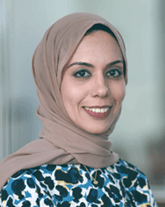
July 21: Dr. Mai Khalaf and her collaborative Ph.D. project conducted with Tanta University, Egypt, was selected for an oral presentation at the American College of Gastroenterology (ACG) in the interventional endoscopy session. The project entitled, “Similar efficacy of a novel bipolar radiofrequency ablation knife to monopolar current knife in endoscopic submucosal dissection of colonic lesions: a non-inferiority randomized trial.” This is the first randomized controlled trial worldwide demonstrating the successful use of bipolar current in ESD of gastrointestinal tumors. The lecture will be held on Oct. 25, 2023, at the Vancouver Convention Centre, in Vancouver, British Columbia, Canada.
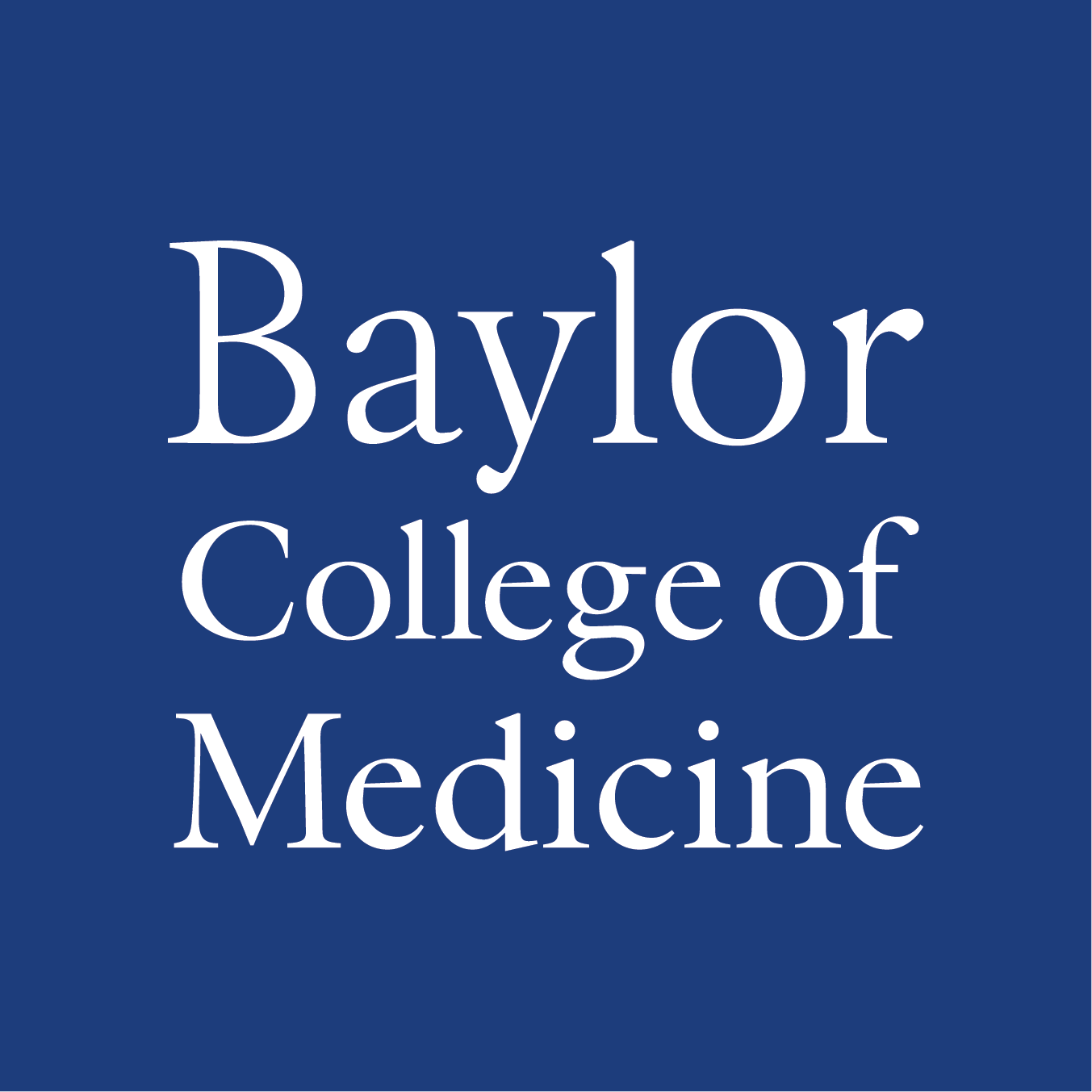
July 14: Dr. George Cholankeri, Assistant Professor, Gastroenterology, Dr. Howard Lee, Assistant Professor, Gastroenterology and Hepatology, Dr. Ritodhi Chatterjee, Medical Resident PGY3, and Dr. Kathik Goli, Medical Student, received the American Gastroenterological Association (AGA) Institute Council Health Care Disparities Research Award at Digestive Disease Week for the poster presentation, “Delays in Liver Transplant Evaluation Among Hispanic Patients.” This abstract was also selected as the Top Poster by the AGA.

June 26: Thanh Nguyen, Graduate Student, Gastroenterology and Hepatology, received the Travel Award from Federation of American Societies for Experimental Biology to attend the Endoplasmic Reticulum Conference: Structure, Function and Disease, which was held June 11-15, in Melbourne, Florida.

June 9: Dr. Jason Mills received funding from the National Institute of Diabetes and Digestive and Kidney Diseases (NIDDK) of the National Institute of Health for his study entitled, “Regulation of atrophy-induced progenitor cells in the gastric corpus”. The grant award proposes to study how the stem cells of the stomach lining regenerate after injury. (Funding Amount: $2,664,266; Funding Period: 5 years).

Dr. Prasun Jalal and his team received funding from Ocelot Bio for their OCE-205-201 study. The study is to assess the safety and efficacy of Intravenous OCE-205 in adults diagnosed with cirrhosis with ascites who have developed hepatorenal syndrome-acute kidney injury (HRS-AKI).
(Funding Amount: $400,000; Funding Period: 2 years).

March 24: Drs. Ruben Hernaez , Prasun Jalal and Fasiha Kanwal received an Investigator Initiated Research Grant from the Mallinckrodt Pharmaceuticals for their project titled, "Quality of care for patients with cirrhosis and acute kidney injury." (Funding amount: $250,000; Funding period: 2 years).
Using comprehensive administrative and clinical databases at the national Veterans Administration, the project will determine adherence to an explicit set of acute kidney injury (AKI) specific quality indicators in an observational cohort of patients with cirrhosis and AKI. The study will also examine key outcomes of care, including length of hospitalization, need for intensive care, cost and survival.

March 3: Dr. Theresa Nguyen received the ACG 2023 Junior Faculty Development Award for her project titled, “A Health Informatics Approach to Reduce Missed Opportunities for Barrett's Esophagus Screening.” (Funding amount: $450,000; Funding period: 3 years).

Feb. 28: Dr. Jason Mills, professor, Gastroenterology and Hepatology, received a subaward for an NIH/NIDDK project titled, "Regulation of Atrophy-induced Progenitor Cells in the Gastric Corpus." (Funding amount: $530,124; Funding period: 4 years).

Jan. 19: Dr. Ru Chen received funding from the National Institutes of Health for her project titled, “Elucidating the role of gut microbiota in colitis-associated colorectal cancer.” (Funding amount: $649,138, funding period: four years).
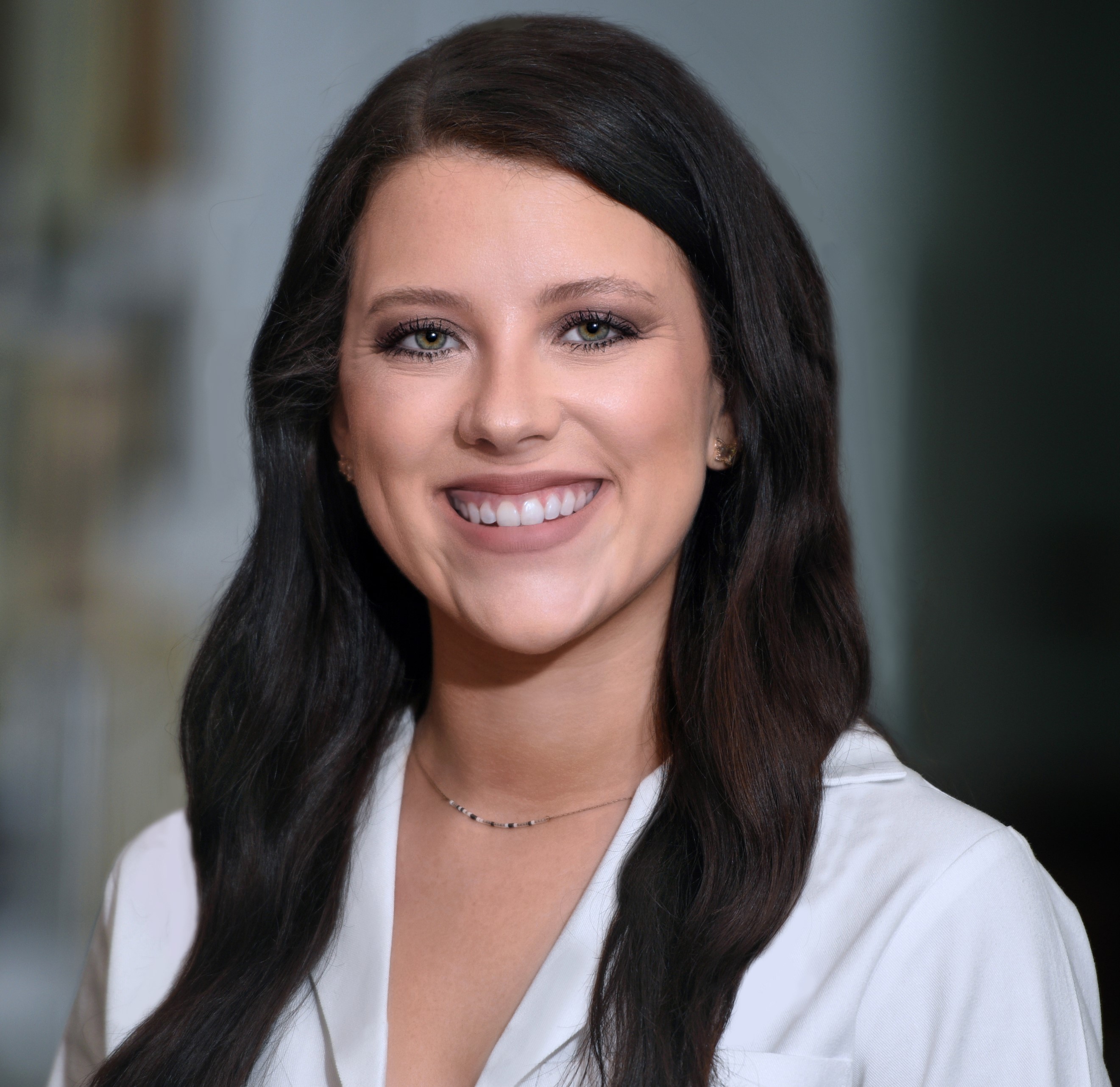
Jan. 16: Courtney Ford was selected for the 2022 WISH Grant Award for her application entitled, “Annual National Nutrition Month Fruit and Vegetable Challenge.” The Vice Chair Group for Faculty and Staff development assist all Departments of Medicine personnel in minimizing burnout and improving overall wellness. The WISH grants awards $500 annually for winning proposals.
2022

Dec. 27: Dr. Theresa Nguyen received funding from the Digestive Diseases Center 9DDC) 2023 Pilot Feasibility Award for her project titled, "Barret's Esophagus Screening Electronic Trigger Tool." ($50,000 for one year)
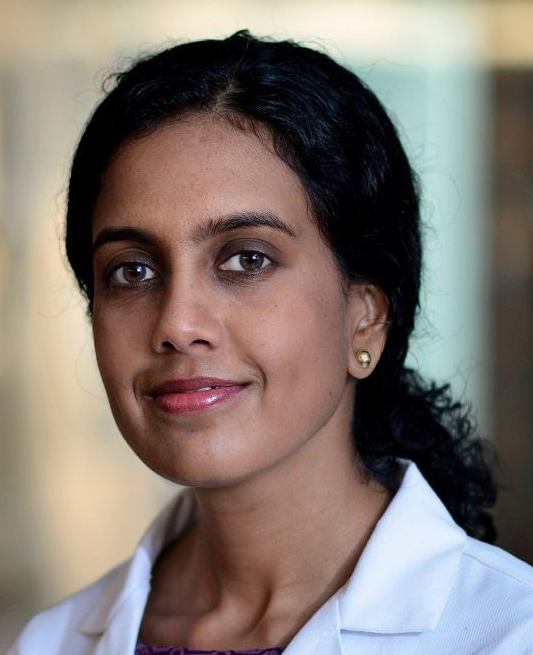
Sept. 12: Dr. Maya Balakrishnan received an NIH K23 award from the National Institute on Minority Health and Health Disparities for her project entitled, “Improving Outcomes among Mexican and Central American Patients with Nonalcoholic Fatty Liver Disease.” ($863,705 for five years).

Sept. 9: Dr. Prasun K Jalal received NIH funding from the National Cancer Institute for the project titled, “Early Detection of Hepatocellular Carcinoma.” The objective of this collaborative project is to develop an integrated blood-based and liver imaging model to optimize early HCC detection in high-risk patients. (Funding amount: $360,000. Funding period: 5 years).

Aug. 26: Dr. Prasun K Jalal was awarded a NIH R21 grant for his project titled ‘’Evaluation of oral administration of PRIM-DJ2727 capsule containing microbiota suspension in patients with severe alcoholic hepatitis.’’ ($420,000 for two years)

Aug. 9: Dr. Fasiha Kanwal is the recipient of a five-year Early Detection Research Network National Cancer Institute award titled “Clinical Validation Center for Hepatocellular Carcinoma (CVC-HCC).” The CVC-HCC will leverage existing infrastructure across four health systems to create two novel resources including a biorepository with both blood and imaging data from patients, with and without HCC, representing contemporary etiologies of liver disease for Phase I-II biomarker studies and a prospective cohort of patients with indeterminate liver nodules to evaluate HCC risk stratification and early detection biomarkers to conduct Phase III biomarker studies using a prospective- specimen-collection, retrospective-blinded-evaluation (PRoBE) design.
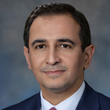
July 12: Dr. Hashem El-Serag was awarded a NIH P01 grant for his project, "Prevention of Hepatocellular Carcinoma Related to Metabolic Syndrome," ($1,098,254 for five years).
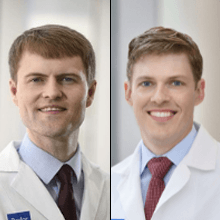
June 24: Dr. RJ Sealock and Dr. Jordan Sparkman have received a combined grant from the American Society of Gastrointestinal Endoscopy, Medtronic, and Amazon Web Services to provide three GI Genius Artificial Intelligence Modules which are designed to enhance the detection of neoplastic lesions during colonoscopy.

June 20: Dr. Natalia Khalaf, assistant professor, Gastroenterology and Hepatology, has received grant funding from the Gordon and Betty Moore Foundation’s Diagnostic Excellence Initiative for her project entitled, “Measuring Missed Opportunities in the Diagnosis of Gastrointestinal Cancers.” ($500,000 for 18 months).

April 22: Dr. Yongji Zeng was awarded the National Cancer Center postdoctoral fellowship for his study entitled, “The role of regulation of the Hippo Pathway in paligenosis.” ($50,000, years: 2022-2023)

June 10: Mahliyah (Maple) Adkins-Threats, Graduate Student, Medicine-Gastroenterology, was selected as a recipient of a Best Poster award at Intestinal Stem Cell - Niche Interactions in Health and Disease Fusion Conference.

April 22: Dr. Theresa Nguyen was awarded the inaugural Department of Medicine Physician-Scientist/Investigator Faculty Development Award for the study entitled, “An Electronic Trigger Tool to Detect Missed Opportunities for Barrett's Esophagus Screening." ($207,906 for two years).

April 20: Dr. Fasiha Kanwal has been awarded a VA Health Services Research & Development Merit Review (Investigator Initiated Research, IIR) grant titled, "Integrating Veteran-Centered Care for Advanced Liver Disease." ($1,513,109 for four years).

April 19: Dr. Mimi Tan was awarded an NIH K23 award from the National Institute of Diabetes and Digestive and Kidney Diseases (NIDDK) for her project titled, "Development and Validation of an Automated Algorithm for Real-time Detection of Neoplasia in Barrett's Esophagus using a Low-cost, Portable Microendoscope". ($993,595 for five years).

Feb.18: Dr. Hashem El-Serag has received funding from the Cancer Prevention and Research Institute of Texas (CPRIT) award for his project entitled, “Novel Metabolics and Radiomics for Predicting HCC Risk.” ($1,995,127 for four years).

Feb. 18: Dr. Maya Balakrishnan receives the American College of Gastroenterology Health Equity Research Award for her project, "Improving outcomes among Mexican and Central American Patients with NAFLD." ($47,033 for one year)

Feb. 16: Dr. Hashem El-Serag received funding from the Cancer Prevention and Research Institute of Texas (CPRIT) award for his project, "Novel Metabolomics and Radiomics for Predicting HCC Risk." ($1,995,127 for four years)

Feb. 3: Dr. Sumimasa Arimura received grant funding from TMC Digestive Diseases Center for his pilot feasibility grant. ($50,000, year: 2022)

Jan. 3: Dr. Charles Cho received grant funding from the Department of Defense office of the Congressionally Directed Medical Research Programs for his project entitled, “The Role of Key Paligenosis Gene IFRD1 in Gastric Carcinogenesis.” ($399,999, years: 2022-2025).
2021

Dec. 10: Dr. Natalia Khalaf has received the SWIFT program awardee at IQuESt for this fiscal year. (Funding amount: $50,000 . Funding period: 1 year).

Oct. 19: Dr. Natalia Khalaf has received grant funding from the VA Health Services Research & Development Program for her Career Development Award project entitled, “Health informatics approaches to reduce missed opportunities in diagnosis of pancreatic cancer.” (Funding amount: $1.1million. Funding period: five years.)
The goal of this project is to: identify what signals of pancreatic cancer and/or delays in diagnostic evaluation are missed in clinical practice; develop electronic trigger tools to identify these signals automatically from EHR data; and assess acceptability and feasibility necessary for implementing these strategies into routine clinical practice in future work. The central long-term goal of this foundational project is to improve the timing of pancreatic cancer diagnosis within the VA healthcare system.

Oct. 1: Dr. Jason Mills, professor, Gastroenterology and Hepatology, is the recipient of the 2022 Cellular & Molecular Gastroenterology Section Research Mentor Award, which is issued by the American Gastroenterological Association Institute Council to recognize achievements as an outstanding mentor in a specific area of research.

Oct. 1: Dr. Ru Chen’s pilot award entitled, “Role of mucosa-adherent microbiota in colitis-associated colorectal cancer” was selected for funding by the Dan L Duncan Comprehensive Cancer Center (DLDCCC) Grant Review Committee. Funding Amount: $50,000 Funding Period: 1 year. The goal of this pilot project is to study if gut microbiota contribute to the development of IBD associated colorectal cancer
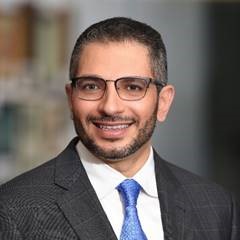
Sept. 13: Dr. Mohamed Othman recently received sponsorship from AbbVie on his study M21-432 entitled, “A Phase 4 Study to Assess Symptoms of Exocrine Pancreatic Insufficiency in Subjects with Cystic Fibrosis or Chronic Pancreatitis treated with Creon® (Pancrelipase) with an Alternate Source of Active Pharmaceutical Ingredient.”

July 28: Dr. Jason Hou has received grant funding from PCORI for his project entitled, “Treat-to-Target of Endoscopic Remission in Patients with Inflammatory Bowel Diseases in Symptomatic Remission: A Pragmatic Randomized Controlled Trial.” (co-PIs, Jason Hou and Siddharth Singh. Funding amount. $6,3 million. Funding period: 5 years).
The goal of this project is to compare the effectiveness and safety of a strategy of switching to an alternative treatment to treat to a target of endoscopic remission vs. continuing index treatment in IBD patients who are in symptomatic remission using a 104-week pragmatic, open-label, randomized clinical trial within a learning health system conceptual framework.

April 9: Dr. Ayse Mindikoglu, associate professor of gastroenterology and hepatology, received a $50,000, one-year grant from the Roderick D. MacDonald Research Fund. This will fund research on the effect of human plasma collected from subjects who fasted from dawn to sunset for four weeks on preventing hepatocellular carcinoma growth in a mouse model.

March 18: Dr. Fasiha Kanwal has received R01 funding from the National Cancer Institute (NIC) for her study entitled, “Multi-level Evaluation of Racial/ethnic Disparities in Liver Disease Outcomes" (MPI: Fasiha Kanwal, Amit Singal; total funding: $2.3 million; duration five years).
The goal of this study is to conduct a comprehensive evaluation of multilevel factors hypothesized to play important roles in causing racial/ethnic and socioeconomic disparities in three key measures of cirrhosis prognosis: Hepatic decompensation, including HCC; Liver-related hospitalization; Overall survival.
Drs. El-Serag, Kramer, Badr, White and Oluyomi are co-investigators on this project.








